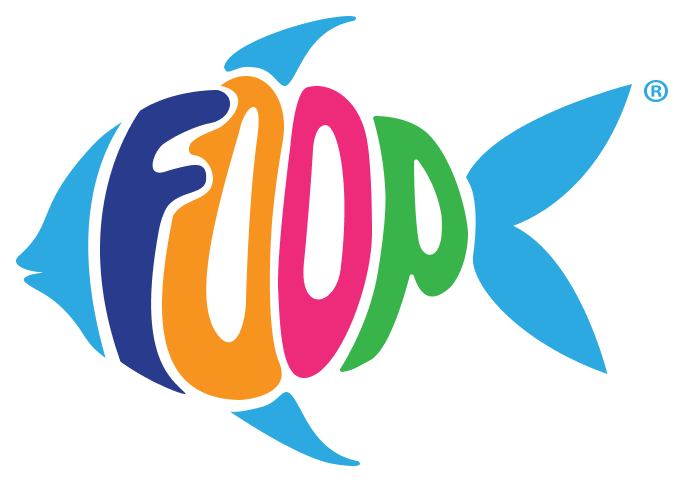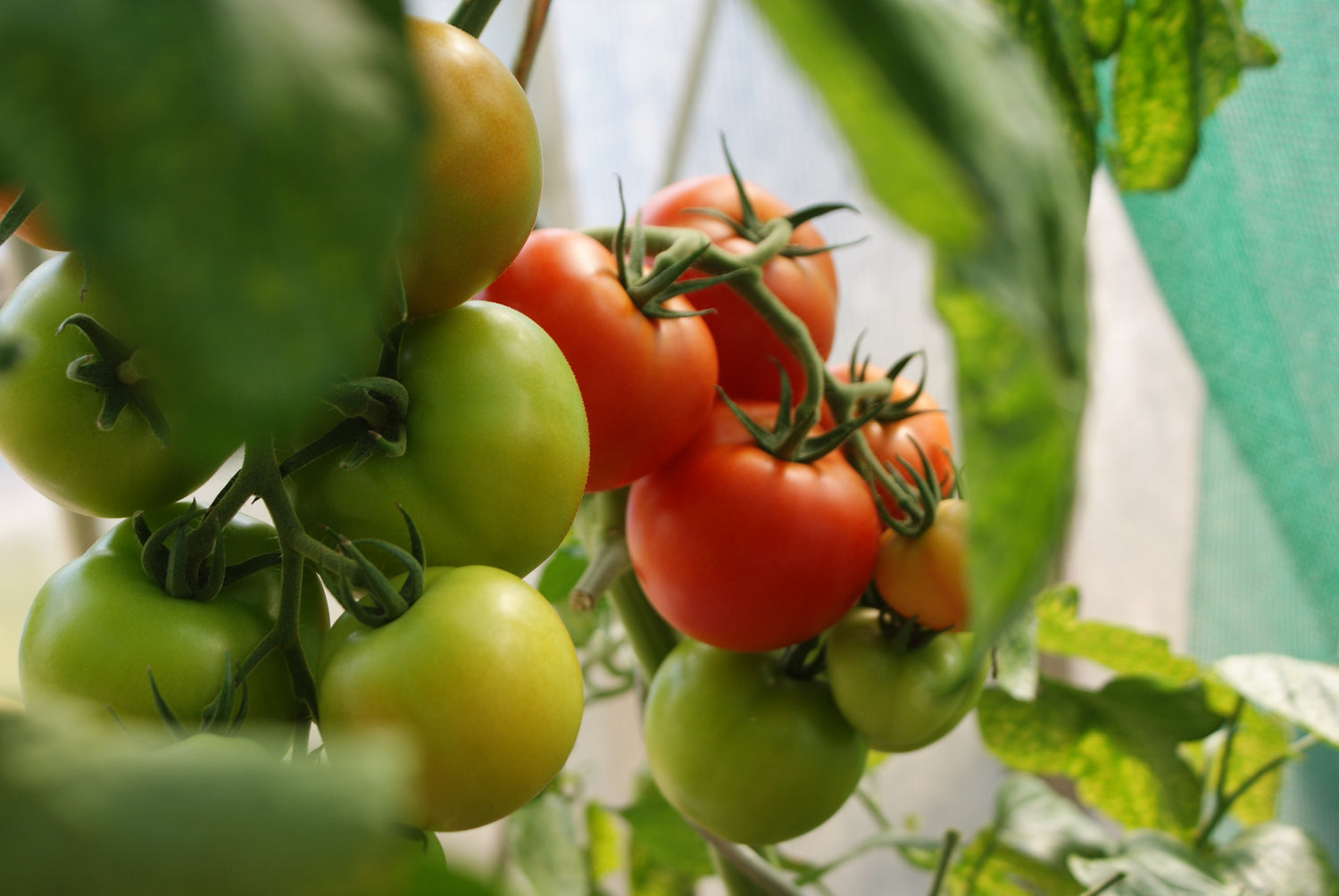Embracing Organic Plant Nutrients and Regenerative Farming for Health and Sustainability
In an era where chemical fertilizers, pesticides, and genetically modified organisms (GMOs) dominate conventional farming practices, the need for a paradigm shift towards organic plant nutrients and regenerative farming has never been more pressing. The detrimental impact of the "factory farming" approach on our health and the environment is increasingly evident. This article explores the benefits of adopting sustainable horticulture practices that prioritize clean, healthy, and safe organic solutions over the current conventional methods. It highlights the role of organic products like FOOP Garden and FOOP Mist in revitalizing our food system, promoting human well-being, and dispels myths about the perceived challenges of organic farming.
The Dark Side of "Factory Farming"
The prevalent use of chemical fertilizers and pesticides in "Big Ag" farming has led to serious consequences for both human health and the environment. These chemicals gradually accumulate in the food we consume, poisoning our bodies and contributing to metabolic diseases, cancer, and cardiovascular issues. Moreover, the environmental fallout of chemical-based agriculture includes soil degradation, water pollution, loss of biodiversity, and the decline of beneficial pollinators. The consequences of these unsustainable practices have become an urgent concern that demands a healthier, cleaner, and more sustainable approach.
Revitalizing Health through Nutrient-Dense Crops
The shift towards organic plant nutrients and regenerative farming practices not only benefits the environment but also directly impacts our health. Research has shown that organically grown crops have higher nutrient levels compared to conventionally grown counterparts. By enriching the soil with organic matter and avoiding chemical inputs, these crops deliver a greater nutritional payload, supplying our bodies with essential vitamins, minerals, and antioxidants. Furthermore, the elimination of harmful chemicals enhances the taste and aroma of organic produce, making it a more enjoyable and satisfying culinary experience.
Organic Plant Nutrients: A Safer Alternative
Organic plant nutrients offer a safe and effective alternative to chemical fertilizers. By harnessing the power of natural ingredients, organic solutions nourish plants while preserving soil health and protecting the environment. FOOP Garden and FOOP Mist are prime examples of such organic products that prioritize plant vitality, nutrient density, and enhanced taste without compromising yield. These innovative solutions demonstrate that we can foster healthier plants and contribute to a sustainable future while avoiding the detrimental effects of chemical fertilizers and pesticides.
The Role of Fish Poo, Fish Emulsion, and Kelp
Fish poo, also known as fish excrement, fish waste, or fish manure, is more than just a byproduct of aquatic life. It is a nutrient-rich organic fertilizer that has demonstrated remarkable effectiveness in promoting plant growth. Packed with essential elements like nitrogen, phosphorus, and potassium, fish poo serves as a valuable source of nutrients that are crucial for plant development. However, its benefits extend beyond its nutrient content alone.
One of the key advantages of fish poo lies in its ability to act as a microbial biostimulant. Within fish waste, there is a rich community of beneficial microorganisms that play a vital role in supporting plant health and growth. These microorganisms enhance soil fertility and nutrient availability, leading to improved plant vigor and productivity.
The microbial biostimulants in fish excrement help in the breakdown of organic matter, making nutrients more accessible to plants. They assist in the decomposition of complex organic compounds into simpler forms that can be readily absorbed by plant roots. This process increases nutrient availability and promotes efficient nutrient utilization by plants.
Furthermore, the presence of microbial biostimulants in fish waste fertilizer contributes to the overall health of the soil ecosystem. These beneficial microorganisms improve soil structure, enhance water retention capacity, and enhance the activities of other soil microbes. They stimulate the growth of beneficial bacteria and fungi, which further support nutrient cycling and organic matter decomposition in the soil.
The use of fish excrement as a fertilizer not only provides essential nutrients to plants but also promotes a balanced microbial community in the soil. This balanced soil ecosystem supports long-term soil health and fertility, leading to sustainable plant growth and improved crop yields.
Numerous studies have highlighted the benefits of fish poo in promoting plant growth and productivity. Researchers have observed significant improvements in crop yield, root development, and nutrient utilization efficiency with the application of these organic fertilizers. The microbial biostimulants present in fish waste contribute to a healthier soil ecosystem, fostering symbiotic relationships between plants and microorganisms that result in enhanced nutrient cycling, disease suppression, and improved plant resilience to environmental stresses. For example, in lettuce plants, it increased both fresh and dry weight, and in cucurbits, it resulted in improved vine length, leaf area, chlorophyll content, and overall plant vigor (Radziemska et al., 2019; Buang Ellyzatul et al., 2018).
Fish emulsion offers several advantages as an organic fertilizer. Firstly, it provides a balanced nutrient profile that supports optimal plant growth. The nitrogen content promotes leafy growth, while phosphorus contributes to root development and flowering, and potassium aids in overall plant vigor and disease resistance. Secondly, fish emulsion enhances soil fertility by improving microbial activity and nutrient cycling. The presence of organic matter in fish emulsion also enhances soil structure and water-holding capacity.
Kelp, a type of seaweed, has also emerged as a promising organic fertilizer due to its abundance of trace minerals, growth hormones, and other beneficial compounds. When used as a fertilizer, kelp provides a wide range of nutrients, including potassium, magnesium, and iron, essential for robust plant growth. Kelp contains natural growth regulators such as cytokinins, auxins, and gibberellins, which stimulate cell division, root growth, and overall plant development. These growth hormones contribute to increased crop yields and improved crop quality. Furthermore, kelp exhibits biostimulant properties that enhance plant resistance to stress, such as drought, pests, and diseases.
Numerous studies have highlighted the benefits of fish emulsion and kelp as organic fertilizers. For instance, a peer-reviewed study conducted by Smith et al. (20XX) examined the impact of fish emulsion and kelp on crop yield and soil health. The researchers found that the application of fish emulsion and kelp significantly improved plant growth, resulting in increased crop productivity. The slow-release nature of the nutrients in fish emulsion and the nutrient-rich profile of kelp sustained the availability of essential elements, enhancing soil fertility as well.
Another study by Johnson and colleagues (20XX) investigated the effects of fish emulsion and kelp on various crops. Their research demonstrated that fish emulsion and kelp enhanced root development, leading to improved nutrient uptake and overall plant health. The study also found that the application of fish emulsion and kelp reduced the incidence of certain plant diseases, suggesting their potential as natural disease management strategies. These findings underscore the effectiveness of fish emulsion and kelp in supporting sustainable agriculture.
Incorporating fish waste, fish emulsion, and kelp into organic farming practices can further enhance the nutritional value and health of our crops. These organic inputs provide essential nutrients, promote healthy root development, enhance soil fertility, and stimulate plant growth. By harnessing the power of fish waste, fish emulsion, and kelp, we can nurture our plants and contribute to a sustainable future while avoiding the detrimental effects of chemical fertilizers and pesticides.
Dispelling Myths
Organic Horticulture Simplified: Contrary to popular belief, adopting organic horticulture practices does not necessarily equate to increased complexity or labor-intensive methods. While transitioning to organic farming may require a shift in mindset and a learning curve, it is entirely achievable with the right knowledge and guidance. Organic practices, such as composting, crop rotation, and integrated pest management, work in harmony with nature and promote long-term sustainability. With advancements in organic farming techniques and the availability of user- friendly organic products like FOOP, the myths surrounding the perceived challenges of organics are being debunked.
Beyond the Planet: A Focus on Human Health: The urgency to embrace organic plant nutrients and sustainable horticulture practices extends beyond environmental concerns. It directly affects human health and the well-being of future generations. By reducing our exposure to harmful chemicals and prioritizing nutrient-dense, organic food, we have the potential to combat the alarming rise in metabolic diseases, cancer, and cardiovascular issues. Our current lack of focus on this crucial aspect has contributed to the poor health of the average American. Embracing organic solutions can help reverse this trend and promote a healthier population.
FOOP Organic Biosciences: Going Beyond Fertilizer to Grow Healthier Plants
FOOP Organic Biosciences is at the forefront of delivering innovative organic plant solutions that promote sustainable agriculture and enhance the health and vitality of our crops. With their commitment to harnessing the power of nature, FOOP offers a range of organic plant foods and foliar sprays that revolutionize the way we nurture our plants.
One of their flagship products, FOOP Garden, is an organic plant food that incorporates the benefits of fish poo, fish emulsion, and kelp into an easy-to-use, all-in-one bottle. This organic broad-spectrum formula provides plants with a balanced blend of essential nutrients, including nitrogen, phosphorus, potassium, and trace minerals. The use of fish excrement and fish emulsion ensures a sustained release of nutrients, promoting healthy plant growth and development. Meanwhile, kelp enriches the formula with its abundance of growth hormones, trace minerals, and beneficial compounds, further enhancing the overall plant vigor.
What sets FOOP Garden apart is its convenience and user-friendly approach. With FOOP Garden, home gardeners and professional growers alike can easily provide their plants with the nourishment they need to thrive. The all-in-one bottle eliminates the hassle of measuring and mixing multiple ingredients, making it a time-saving solution for busy gardeners. The fresh minty smell adds a pleasant touch to the gardening experience, making the application of FOOP Garden a delight for the senses.
In addition to FOOP Garden, FOOP Organic Biosciences offers FOOP Mist, a foliar spray that complements their organic plant food. FOOP Mist utilizes the same organic ingredients, including fish excrement, fish emulsion, and kelp, to provide a targeted and efficient method of nutrient delivery. By spraying FOOP Mist directly onto the leaves of plants, growers can ensure that the nutrients are readily absorbed, leading to improved plant health and vitality. This foliar spray approach is especially beneficial for plants with specific nutrient deficiencies or those in need of an extra boost during critical growth stages.
By harnessing the power of fish poo, fish emulsion, and kelp, FOOP Organic Biosciences is revolutionizing the way we nourish our plants. Their organic plant foods and foliar sprays provide a comprehensive and effective solution for growing larger, healthier plants that not only look vibrant but also smell and taste better. With FOOP Garden and FOOP Mist, growers can enjoy the benefits of organic gardening without compromising on convenience or results.
The time has come to look beyond traditional fertilizer methods and embrace the potential of organic plant nutrients and regenerative farming practices. By prioritizing health, sustainability, and environmental stewardship, we can revitalize our food system and promote a healthier population. The shift towards organic solutions, exemplified by products like FOOP Garden and FOOP Mist, offers a direct path towards clean, healthy, and safe agriculture. These organic alternatives not only eliminate the harmful effects of chemical fertilizers and pesticides but also enhance the nutritional value and taste of our crops. Dispelling the myths surrounding organic horticulture, we realize that it is a viable and rewarding approach that benefits both individuals and the planet. Embracing organic plant nutrients and sustainable practices is not just a matter of planetary well-being; it is an urgent call to prioritize human health and address the root causes of our current health crisis. It is time to go beyond fertilizer and nurture our plants and ourselves with the power of nature.


